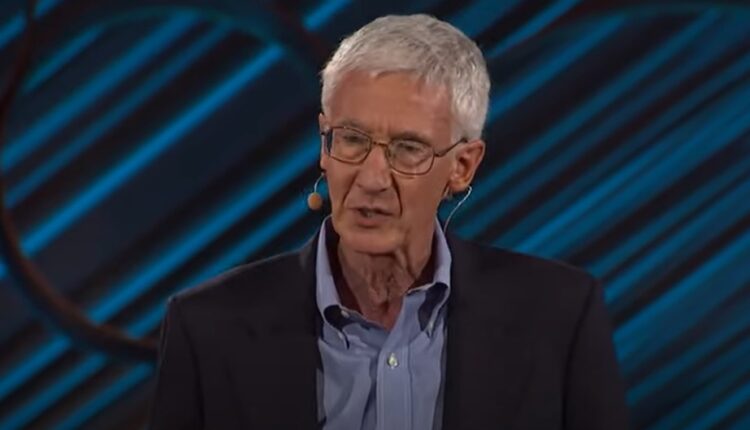
Psychedelic Research Pioneer Roland Griffiths Passes At Age 77
A sad day in the psychedelics community today as news filters out that leading industry neuroscientist, Dr. Roland Griffiths, Ph.D., has passed. The esteemed Johns Hopkins University psychopharmacologist is described as the man who brought psilocybin back into the field of medical research for the first time in decades—notably by conducting his first clinical trial with psilocybin in 1999.
Over the years, Dr. Griffiths work has garnered substantial support through grants from the National Institute of Health, and he boasts a prolific publication record, with more than 400 journal articles and book chapters to his name. Additionally, Dr. Griffiths has played a pivotal role in training over 50 postdoctoral research fellows.
His influence extends far beyond academia, as he has served as a consultant to the NIH and lent his expertise to numerous pharmaceutical companies, aiding in the development of new psychotropic drugs. Furthermore, Dr. Griffiths has contributed as a member of the Expert Advisory Panel on Drug Dependence for the World Health Organization.
Dr. Roland Griffiths: Among The Greatest Psychedelic Researchers Of The Modern Age
| Name | Field | Notable Contributions | Date of Birth | Date of Death |
|---|---|---|---|---|
| Albert Hofmann | Chemistry | Synthesized LSD, discovered its psychoactive properties, and conducted early research on the substance | January 11, 1906 | April 29, 2008 |
| Timothy Leary | Psychology | Conducted early research on LSD and became a prominent advocate for the use of psychedelics in therapy and personal growth | October 22, 1920 | May 31, 1996 |
| Stanislav Grof | Psychiatry | Conducted research on the use of LSD in psychotherapy and developed a framework for understanding non-ordinary states of consciousness | July 1, 1931 | — |
| Terence McKenna | Ethnobotany | Developed theories on the use of psychedelics in human evolution and consciousness expansion | November 16, 1946 | April 3, 2000 |
| Alexander Shulgin | Chemistry | Synthesized and tested hundreds of novel psychoactive compounds, including MDMA | June 17, 1925 | June 2, 2014 |
| Rick Strassman | Psychiatry | Conducted research on the effects of DMT, a potent psychedelic, on human subjects | February 8, 1952 | — |
| James Fadiman | Psychology | Conducted research on the use of microdosing LSD for personal growth and creative enhancement | May 27, 1939 | — |
| Roland Griffiths | Psychiatry | Conducted research on the use of psilocybin, the active ingredient in magic mushrooms, for treating depression, anxiety, and addiction | July 19, 1946 | October 16, 2023 |
| William Richards | Psychiatry | Conducted research on the use of psilocybin in end-of-life care and spiritual experiences | — | — |
| David Nutt | Psychiatry | Conducted research on the safety and potential benefits of various psychoactive substances, including LSD and psilocybin | April 16, 195 |
Dr. Griffiths’ research portfolio encompasses a wide array of substances, including sedative-hypnotics, caffeine, and novel mood-altering drugs. In 1999, he embarked on an ambitious research program delving into the effects of the classic psychedelic psilocybin. This initiative encompasses studies involving healthy volunteers, individuals beginning their meditation journeys, and seasoned religious leaders.
Notably, therapeutic studies with psilocybin have explored its potential in alleviating psychological distress in cancer patients, aiding in smoking cessation, and even treating major depression.
Beyond psilocybin, Dr. Griffiths’ investigations have ventured into substances like salvinorin A, dextromethorphan, and ketamine, all of which induce altered states of consciousness sharing certain similarities with psilocybin. His research also delves into the intricate domain of drug interactions and employs advanced brain imaging techniques, such as fMRI and PET, to dissect the pharmacological and neural mechanisms underlying these effects.
Within the confines of the Hopkins laboratory, a series of internet surveys have cast light on diverse psychedelic experiences, including those associated with acute and enduring adverse effects, mystical encounters, entity and God-encounter phenomena, as well as reported positive shifts in mental health. These positive changes encompass reductions in depression, anxiety, substance abuse, and improvements in overall well-being.
Although Dr. Griffiths will not be around to see all the fruits of his labor, his influence of his legacy will reverberate well beyond his passing. One of the psychedelic industry’s true shining lights.
Notable Research Papers
- Psilocybin produces substantial and sustained decreases in depression and anxiety in patients with life-threatening cancer: A randomized double-blind trial (Griffiths et al., 2016)
- Mystical experiences occasioned by the hallucinogen psilocybin lead to increases in the personality domain of openness (MacLean, Johnson & Griffiths, 2011)
- Mystical-type experiences occasioned by psilocybin mediate the attribution of personal meaning and spiritual significance 14 months later (Griffiths et al., 2008)
- Psilocybin can occasion mystical-type experiences having substantial and sustained personal meaning and spiritual significance (Griffiths et al., 2006)
Notable Media Appearances
- Roland Griffiths, Tim Ferriss | The Future and Science of Psychedelics | SXSW 2018 – Interview at SXSW by Tim Ferriss
- A Psychedelics Pioneer Takes the Ultimate Trip – New York Times
- Prof Roland Griffiths – Experimental Studies of Psilocybin-Occasioned Mystical-Type Experience – Talk at Breaking Conventions
- The science of psilocybin and its use to relieve suffering – TED (MED) talk
- Roland Griffiths: Johns Hopkins Psilocybin Project – Implications for Spirituality & Therapeutics – Talk at Psychedelic Science 2017
- TEDxMidAtlantic – Roland Griffiths – 11/5/09 – TEDx Mid Atlantic



